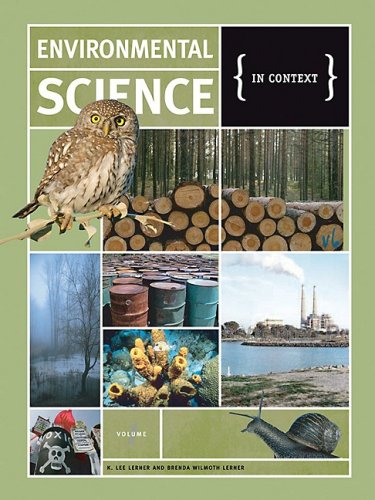

Most ebook files are in PDF format, so you can easily read them using various software such as Foxit Reader or directly on the Google Chrome browser.
Some ebook files are released by publishers in other formats such as .awz, .mobi, .epub, .fb2, etc. You may need to install specific software to read these formats on mobile/PC, such as Calibre.
Please read the tutorial at this link: https://ebookbell.com/faq
We offer FREE conversion to the popular formats you request; however, this may take some time. Therefore, right after payment, please email us, and we will try to provide the service as quickly as possible.
For some exceptional file formats or broken links (if any), please refrain from opening any disputes. Instead, email us first, and we will try to assist within a maximum of 6 hours.
EbookBell Team

4.7
56 reviews
ISBN 13: 9781414436173
Author: Janet Witalec, Brenda Wilmoth Lerner, K Lee Lerner
Environmental Science in Context provides comprehensive coverage of the environmental sciences. Cross-curricular in nature, the title supports both basic and advanced curricula in earth and environmental science, physics, chemistry, and biology, as well as general science, history, government, and the social sciences. Aimed primarily at high school students, this 2-volume, 4-color title will offer coverage of the history, politics, and ethical debates related to environmental science. It brings together original essays written by leading experts in the field, primary source documents, and sidebars on the cultural, economic, and political issues surrounding scientific thought -- providing insights on leading social issues and spurring critical thinking about the impact of science on daily life and globalization.
Written by a global array of experts in physics, geology, earth science, environmental science, sociology, and law, Environmental Science in Context includes approximately 250 articles on such topics as fossil fuel combustion, freshwater, international environmental law, landscape evolutions, orbital variations, recycling, wastewater treatment technologies, weather and climate, and more.
Part I: Foundations of Environmental Science and Sustainability
Chapter 1: Understanding Our Environment: An Interdisciplinary Approach
Chapter 2: Environmental Ethics, Worldviews, and Values
Chapter 3: Environmental Systems: Matter, Energy, and Life
Chapter 4: Evolution, Biodiversity, and Population Ecology
Part II: Human Population and Resource Management
Chapter 5: The Human Population and Its Impact
Chapter 6: Sustaining Our Lands: Agriculture, Forests, and Rangelands
Chapter 7: Water Resources and Aquatic Systems
Chapter 8: Energy Resources and Their Environmental Consequences
Part III: Environmental Degradation and Global Challenges
Chapter 9: Atmospheric Processes and Air Pollution
Chapter 10: Climate Change: Causes, Impacts, and Solutions
Chapter 11: Waste Management and Industrial Ecology
Chapter 12: Environmental Health and Toxicology
Part IV: Towards a Sustainable Future: Solutions and Policy
Chapter 13: Environmental Policy and Law
Chapter 14: Economics and the Environment
Chapter 15: Urbanization and Sustainable Cities
Chapter 16: Looking Forward: Our Role in a Sustainable World
environmental science: in context
environmental science in context
what does sustainability mean in the context of environmental science
what is sustainability in the context of environmental science
what does sequester mean in an environmental science context
Tags: Janet Witalec, Brenda Wilmoth Lerner, K Lee Lerner, Environmental, Science